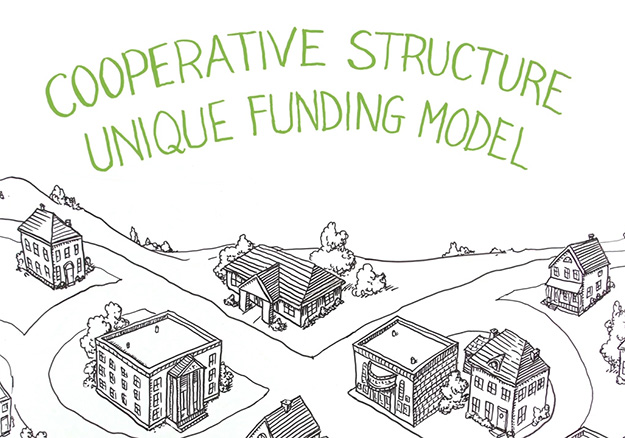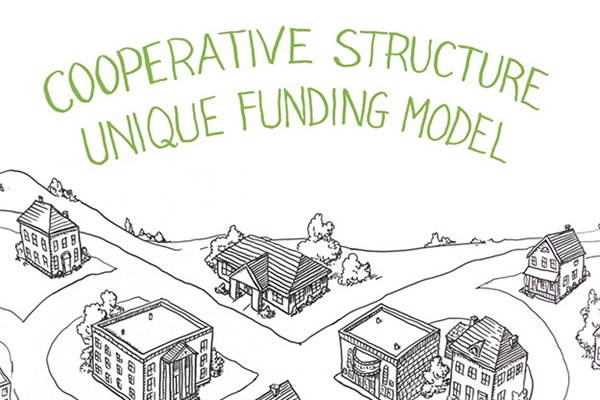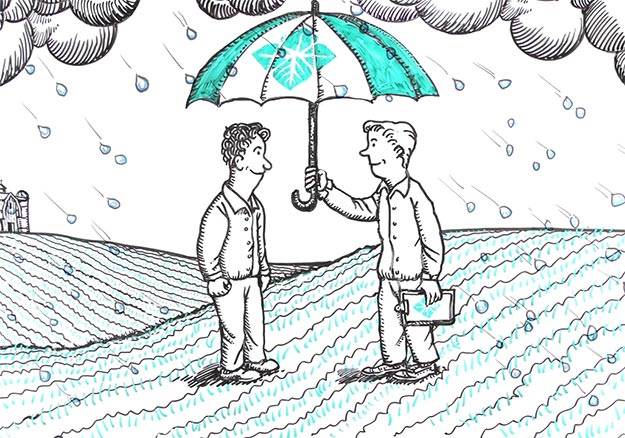Our structure
We support rural communities with reliable, consistent credit and financial services. Watch this video to learn about our unique cooperative structure.
Our structure
We support rural communities with reliable, consistent credit and financial services. Watch this video to learn about our unique cooperative structure.
Overview of the Farm Credit System
Find out how we support rural communities and agriculture by watching this video.
Cooperative strength
Farm Credit’s enduring strength lies in its cooperative structure. The Farm Credit Bank of Texas is a federated cooperative, owned by 12 lending co-ops. They, in turn, are owned by their borrowers: farmers, ranchers, agribusinesses and rural homeowners.
This cooperative structure gives our customers — and their customers — a vested interest and voice in our business.


Cooperative advantage
Other lenders may lend to agriculture only when it’s easy. But financing rural communities is all we do.
When Congress created the Farm Credit System in 1916, it gave the System a mission to be a competitive, reliable source of capital for borrowers in agriculture and rural communities. That’s why we provide expertise like no other lenders in these areas.


COOPERATIVE
OWNERSHIP
As a co-op, we’re owned by our customers. All customer-members have an equal voice in the business, no matter their equity shares. One member, one voice.


TAX
status
Certain Farm Credit cooperatives qualify for single tax treatment of income. They distribute it as qualified patronage returns to their borrowers. Under the IRS Code, the cooperative isn’t taxed on this income. Only the member-stockholders are taxed.


SHARED
EARNINGS
We return our earnings to our customer-stockholders in the form of patronage dividends. The more we earn, the more we pay. This lowers our customers’ cost of borrowing.


OUR
ASSOCIATIONS
We provide capital and services to 12 retail lending co-ops. These lenders make loans for rural real estate, agribusiness and agricultural production.
Seven co-op principles
All cooperatives are organized under a set of guiding principles that ensure they are dedicated to their communities and committed to their member owners.
-
1
Voluntary and open membership
Cooperatives are voluntary organizations, open to all people able to use their services and willing to accept the responsibilities of membership, without gender, social, racial, political or religious discrimination.
-
2
Democratic Member Control
Cooperatives are democratic organizations controlled by their members, who actively participate in setting policies and making decisions. The co-op rule is one vote per member.
-
3
Members’ Economic Participation
Members contribute equally to, and democratically control, the capital of the cooperative. This benefits members in proportion to the transactions with the cooperative rather than the capital invested.
-
4
Autonomy and Independence
Cooperatives are autonomous, self-help organizations controlled by their members. If the co-op enters into agreements with other organizations or raises capital from external sources, it does so based on terms that ensure democratic control by the members and maintain the cooperative's autonomy.
-
5
Education, Training and Information
Cooperatives provide education and training for members, elected representatives, managers and employees so they can contribute effectively to the development of their cooperative. Members also inform the general public about the nature and benefits of cooperatives.
-
6
Cooperation Among Cooperatives
Cooperatives serve their members most effectively and strengthen the cooperative movement by working together through local, national, regional and international structures.
-
7
Concern for Community
While focusing on member needs, cooperatives work for the sustainable development of communities through policies accepted by their members.




